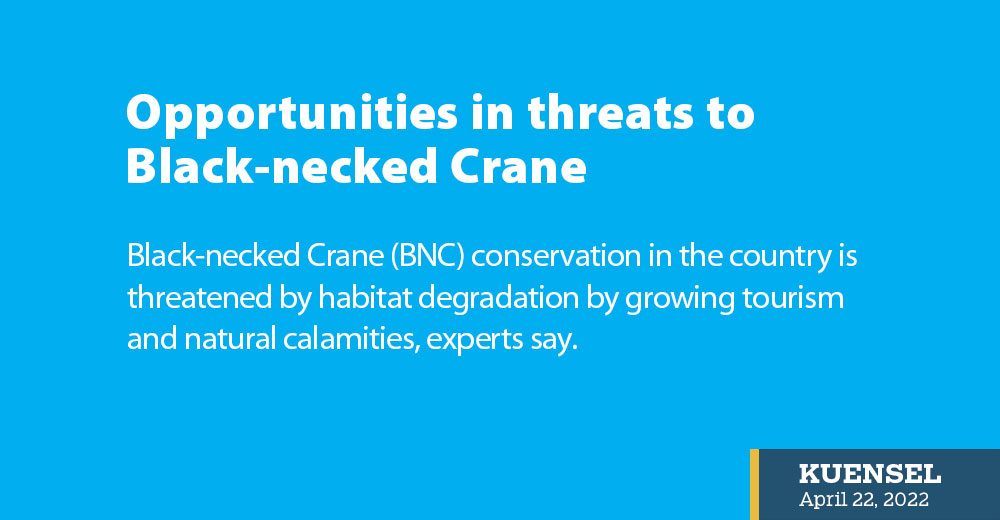Chhimi Dema
Black-necked Crane (BNC) conservation in the country is threatened by habitat degradation by growing tourism and natural calamities, experts say.
The national coordinator for crane conservation from the Royal Society for Protection of Nature (RSPN) Jigme Tshering said with the challenges also come opportunities for community solidarity and global unification to strengthen conservation efforts.
He said that the crane’s habitats are degraded and encroached by growing tourism that demands a change in the land-use practices.
He said that the tourism sector can provide opportunities for the development of community-based tourism, for example, converting the existing infrastructure into homestays. “This way we safeguard the land-the bird’s habitat, and the community’s livelihood is restored.”
Another opportunity, he said, from the threat of natural calamities is communities coming together to restore the roosting sites, therefore, strengthening the conservation of the species.
At the regional level, he said, if a stopover site of the birds is degraded, the entire migration route is disrupted. “This brings opportunities for regional cooperation for the conservation of the bird.”
Research and monitoring, habitat management, global or local coordination and partnership, environmental education and advocacy, and community engagement and sustainable development are the five approaches to crane conservation in Bhutan.
He was presenting at the ‘Evening for a Bird’ a webinar series organised by the Bhutan Birdlife Society (BBLS) to exchange knowledge and information regarding birdlife in Bhutan, build the capacity of its members, enhance BBLS’ networking and friendship, and promote citizen-science and environmental stewardship.
The sixth series titled: “Threats to opportunities – A review of Black-necked Crane conservation programme”, was led by Jigme Tshering on April 20.
Jigme Tshering said that the BNC conservation programme began in 1986 with the establishment of RSPN to monitor and report the number of cranes wintering in Bhutan. “RSPN over time has become major partners to the government in conservation and protection of our national heritage.”
Black-necked Cranes’ foraging and roosting sites in the country are in Wangdue (Gangtey, Phobjikha, and Khotokha), Trashiyangtse (Bumdeling), Lhuentse (Dungkhar), and Bumthang (Chumey, Choekhor, and Tang).
The current global black-necked crane population has increased from around 7,000 to 11,000 birds since 1990.


